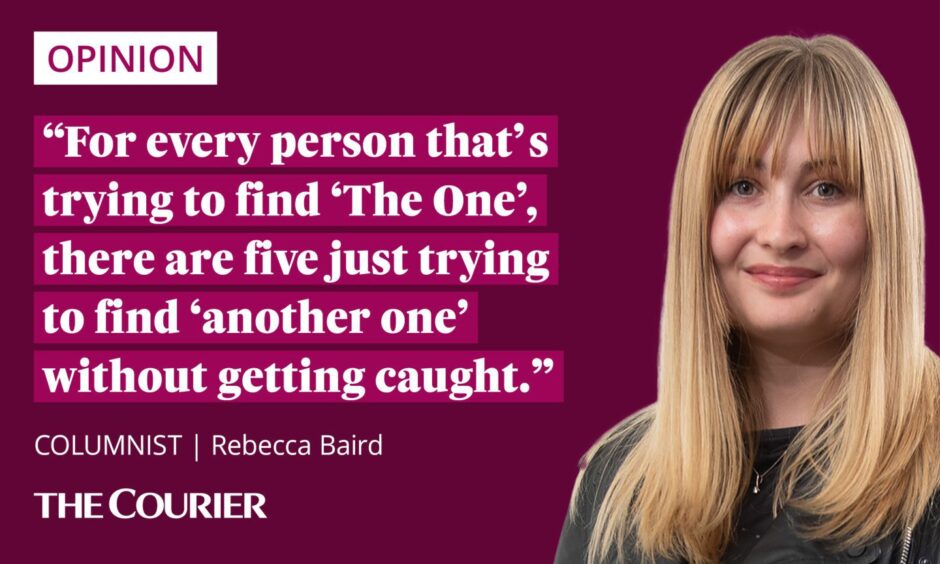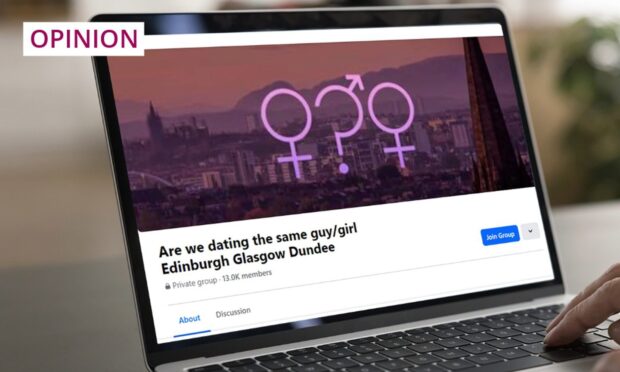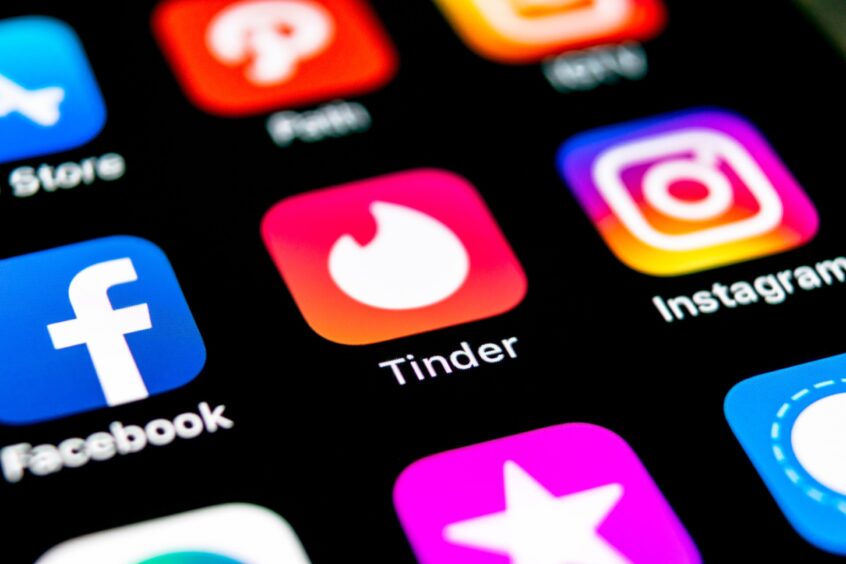There’s no worse feeling than knowing that someone you love is lying to you.
Except maybe the feeling of knowing it and not being able to prove it.
So I understand completely how Facebook group ‘Are we dating the same guy/girl – Glasgow, Edinburgh, Dundee’ has come to have more than 11,000 members.
The group hit Courier headlines earlier this week, but ones like it have been bubbling away in the background for years now.
Some are for women only, some for men – the idea being that with the prevalence of dating apps comes the opportunity for people to lie about who they are (and whether or not they’re single) with astonishing ease.
So if we all band together, we can catch them out. Sounds like a good idea, on the face of it. Right?
But in practice, these groups are filled with more murk and manipulation than the editing room of Love Island.
I know, because for a while, I was in one.

I can’t remember how I heard about the women-only ‘Are we dating the same guy?’ Facebook group that’s been floating about my feed for the last few years, only that the minute I did, I had to look it up.
At the time, I told myself it was out of journalistic curiosity, an interest in human behaviour. I told myself I was a casual observer, there for the drama. Ha.
Are you ‘crazy’ or are they just lying?
It took me one week to look up the name of the person I was involved with at the time. I found nothing. I felt weird.
Guilty, but also disappointed. The truth is, I’d expected to see him there. I suspected there was someone else. Or rather, I knew there was. I just didn’t want to believe it.
Plus, I didn’t have any evidence, beyond the occasional repeated story or shifty grab of a phone.
And a woman throwing out accusations of infidelity without evidence is dismissed swiftly and easily with one word: ‘Crazy.’
I didn’t want to be called crazy. But there I was, acting sneaky and suspicious and dishonest, trying to find some screenshot or paper trail to make me believe what I already knew but was too scared to say: I’m not the only one, am I?
I never found any evidence, so when I confronted him long after accepting that the connection was far past saving, I didn’t have ‘receipts’. I only had that gut feeling.
But even if he hadn’t had the decency to confirm my suspicions out loud, his face did it for him. Most people are actually quite bad at lying when looking into your eyes instead of into a screen.
All’s fair in love and war… and Facebook?
Funnily enough, I never wondered whether or not I should post him on that group, to ‘warn’ other women. Some would say I should’ve, ‘to save another poor woman the hassle and the heartbreak’.
But something about that doesn’t sit right with me. He wasn’t a criminal, just a rat.
Certainly, in the spirit of Clare’s Law, and when it comes to abusive partners, groups like this can save lives.
I’ve watched it unfold in comments sections over and over – ‘that’s not his real name’ and suddenly the sisterhood has saved one of our own from a Tinder date that could spell out years of hell.
In the age of digital dating, when terms like ‘revenge porn’ are common and date rape is rife and AI is advancing at an eerie rate, it’s important that people can arm themselves with the knowledge necessary to protect them from criminal harm.
But these groups often descend into soap-level gossip, with some users even accusing others of posting fake information to manipulate members. That’s crazy.
There’s no fool-proof way to fall in love
And what’s become depressingly, abundantly clear from the existence of these groups is that people are cheating all the time, men and women. It’s not just normalised – it seems expected.
Online dating offers first-name-only connections, multiple profiles across multiple apps, unverified personal information and private-message interactions which give people a means to conduct entire relationships without being publicly accountable for their behaviour.
And so for every person that’s trying to find ‘The One’, there are five just trying to find ‘another one’ without getting caught.
It’s a horrible reality, and makes wading into the dating pool feel like getting into shark-infested waters.
But when it comes to love, and finding it, there’s no reward without risk. There never has been.
People cheated long before technology made it easy. But before saved messages and Instagram stalking and location sharing, people simply relied on their instincts.
In the end, it doesn’t really matter if you can prove someone is a cheat. It’s not a crime, though some would argue it should be.
There’s no way to ensure you’re never getting cheated on, if you choose to enter the fickle realm of romance. But love, real love, requires trust.
So the real question is: Do you trust the person you’re dating?
And if you don’t, why are you still dating them?













Conversation